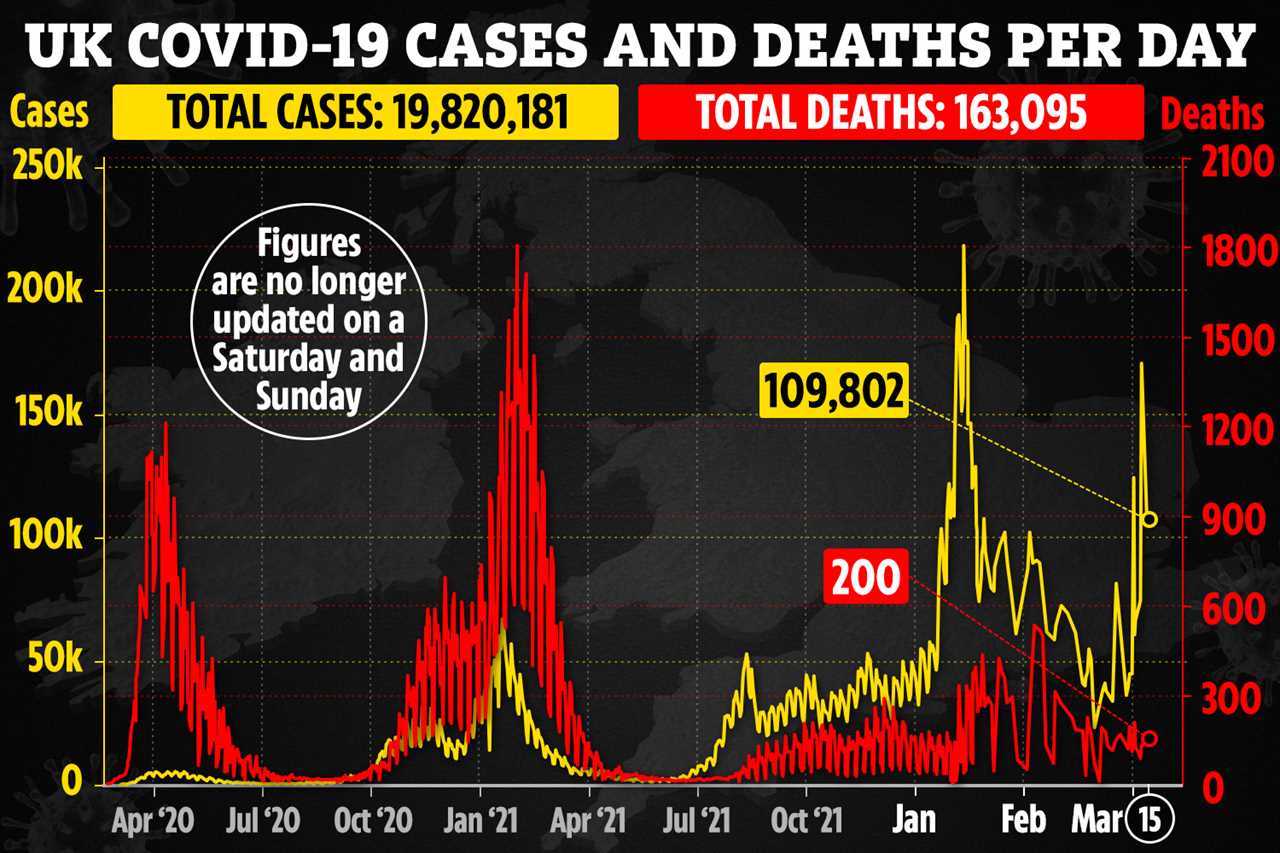COVID cases in the UK have risen by 77 per cent in a week with 109,802 new infections reported today.
Last Tuesday the country saw 61,900 new daily cases, before numbers rose steadily for the rest of the week.

As the bug hits more Brits around 13,500 patients are also now in hospital with the virus.
Another 200 fatalities were reported today, a jump from 135 logged yesterday.
The last time cases were over 100,000 on a single day was February 1, when the country saw 112,458 new infections.
Health Secretary Sajid Javid said this rise in cases was to be expected after ripping up the Covid rule book last month.
Read more on Covid
But it has sparked concerns for more vulnerable people who may be nearing the end of their immunity from boosters.
While Omicron is a milder infection than previous variants such as Delta and Alpha, it is more transmissible.
And now the Omicron sub-variant, BA2, is now the dominant strain in the UK.
It is thought to be just as mild, especially in the vaccinated, but spreads far quicker.
Health chiefs have repeatedly said vaccinations are the way to keep yourself and others protected, and get through the pandemic.
Professor Adrian Esterman, an epidemiologist, has warned cases are going to “skyrocket”.
He wrote: “Omicron BA.2 is about 1.4 times more infectious than BA.1. The basic reproduction number (R0) for BA.1 is about 8.2, making R0 for BA.2 about 12.
“This makes it pretty close to measles, the most contagious disease we know about”, he added.
One expert said the increase in admissions is likely due to waning immunity and a growth in infections due to the BA.2 Omicron variant.
While BA.2 (sister of BA.1, which caused the Christmas and New Year wave) is no more severe, it does spread faster, officials say.
This can lead to an increase in hospital admissions by default.
Brits over 75 years old, care home residents and people over 12 who are immunosuppressed can get a booster in a few weeks.
BOOST UP
NHS England is prepped to start dishing out vaccines to eligible people later this month, as long as they are six months on from their last shot.
The original plan was to start the next phase of the rollout from April, but anyone who is eligible before then can have another vaccine.
It has not been confirmed when exactly this might start, with some reports suggesting from March 21 – if you think you are eligible, wait for your invite.
The latest estimate from the Office for National Statistics (ONS) shows around one in 25 people are now infected with Covid.
The ONS says it’s not clear exactly what is behind the rise, but it is likely it is a combination of no restrictions, waning immunity and a more contagious sub-variant of Omicron becoming dominant.
Current rules state that you legally don’t have to isolate if you have the bug.
If you can though, you should as this will help protect other people.








